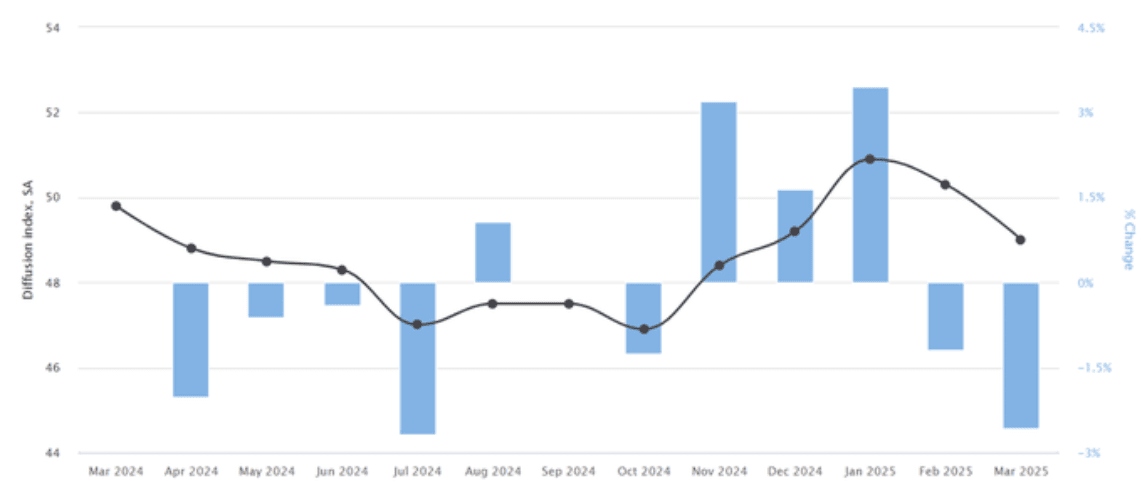Many people think the crypto market's ups and downs are all about luck, but there is actually a clear logic and rhythm behind it.
As long as you grasp a few key macroeconomic indicators, you can predict market direction in advance, avoid major declines, and seize bull markets.
I spent 7 years summarizing this system, and you only need to spend 3 minutes reading this article 👇

📍1. Federal Funds Rate
This is the most important interest rate indicator in the US, affecting dollar liquidity and market risk appetite:
Rate hike ➜ Increased cost of funds ➜ Tightening ➜ Decline in risk assets (like BTC/ETH)
Rate cut ➜ Funds become cheaper ➜ Risk appetite increases ➜ Crypto assets strengthen
💡 Conclusion: The lower the interest rate, the more favorable it is for cryptocurrencies, especially $BTC and $ETH .

📍2. US CPI Inflation Index
Consumer Price Index (CPI) is key for the Fed's policy decisions:
Rising inflation ➜ Fed's hawkish stance (possible rate hike) ➜ Unfavorable for crypto
Declining inflation ➜ Expecting easing ➜ Favorable for crypto rise

📍3. US Dollar Index (DXY)
DXY measures the strength of the dollar against other currencies:
DXY rising ➜ Strong dollar ➜ Global liquidity tightening ➜ Crypto under pressure
DXY falling ➜ Dollar weakening ➜ Favorable for capital inflow into risk assets
💡 Conclusion: The stronger the dollar, the worse it is for crypto.

📍4. US Treasury Yield (10-Year/2-Year)
Reflects market expectations for future interest rates and economic outlook:
Rising yields ➜ High cost of funds ➜ Decreased asset valuations
Yield inversion ➜ Market worries about recession ➜ Fed may turn dovish
💡 Conclusion: Inversion may be a precursor to easing, bullish for the crypto market.
📍5. Global Liquidity Index (Global M2 / USD)
Measures whether global funds are abundant:
QE (Quantitative Easing) ➜ Market injection of funds ➜ Crypto rising
QT (Quantitative Tightening) ➜ Fund recovery ➜ Crypto downturn

💡 Conclusion: More funds, crypto rises; fewer funds, crypto falls.
📍6. Stock Market Trends (S&P 500 / Nasdaq)
The stock market reflects overall market sentiment and is highly correlated with the crypto market:
Stock market crash ➜ Decreased risk appetite ➜ Crypto assets also pull back
Strong stock market ➜ Market sentiment stabilizes ➜ Crypto rises
💡 Conclusion: Focusing on US stocks means closely monitoring the crypto market.

📍7. Volatility Index (VIX)
Represents the level of market panic:
High VIX ➜ Increased market risk aversion ➜ Significant selling pressure on crypto
Low VIX ➜ Market stability ➜ Increased risk appetite
💡 Conclusion: Low VIX is a good entry point, high VIX requires caution against risk.

📍8. Non-Farm Payroll and Unemployment Data (NFP & Unemployment)
Indicates whether the labor market is strong:
Strong employment ➜ Fed has no pressure to cut rates ➜ Crypto under pressure
Weak employment ➜ Increased probability of easing ➜ Positive for the crypto market
💡 Conclusion: Weak employment = Shift to easing = Spring for Crypto.

📍9. Purchasing Managers' Index (PMI)
Leading economic indicators predict changes in economic activity:
Declining PMI ➜ Signal of economic slowdown ➜ Fed may turn dovish
Rising PMI ➜ Strong economy ➜ Hawkish stance
💡 Conclusion: A declining PMI may actually drive crypto prices up.

📍10. Geopolitical and trade risks
Events like wars, sanctions, tariffs, etc., will affect capital flows:
Tense situation ➜ Traditional assets under pressure ➜ BTC becomes a hedge tool
Escalation of sanctions ➜ Some countries may turn to cryptocurrency assets for hedging
💡 Conclusion: In times of chaos, BTC is 'digital gold'.

✅ Conclusion:
You cannot predict how much it will rise tomorrow
But you can use macro indicators to judge the direction for the next quarter
🔍 Understanding macro = Preparing in advance = Avoiding major declines + Riding the main uptrend
📈 Learn this system, and you will no longer be a FOMO person, but the master of market rhythm.
This is the insight I have accumulated over 7 years, and now you have mastered it. What's next? Start using it to make your own judgments.


